Keywords: Australian Institute Of Health And Welfare
-

AUSTRALIA
- Frank Brennan
- 29 August 2017
10 Comments
In an age of 'budget repair' when both sides of politics are trying to contain the welfare budget, the search for savings and silver bullets is relentless. If Ministers Porter and Tudge are really seeking 'a way of assisting people to get off drugs and back into work', they should convince their cabinet colleagues of the need to increase the Newstart and Youth Allowance so that it might provide a real start for assisting people to survive with dignity while preparing for and getting back into work.
READ MORE 
-
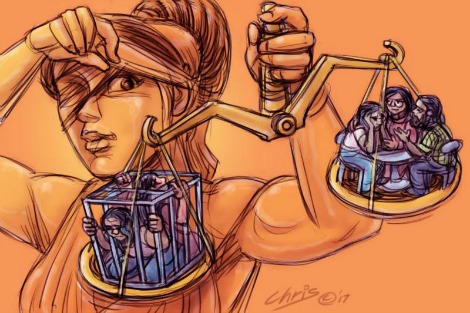
AUSTRALIA
- Ann Deslandes
- 31 March 2017
10 Comments
Australia was rated as the top destination for millionaire migrants in 2016 for the second year in a row. Meanwhile the latest Australian Institute of Health and Welfare reveal high correlations between prison entrance and indicators of entrenched poverty and discrimination. If we want our system for justice to amount to something more than a mirror of our inability to distribute wealth and opportunity evenly, we need to address the undeniable role wealth inequality has in putting people in prison.
READ MORE 
-

RELIGION
- Frank Brennan
- 17 February 2017
3 Comments
The commission's forensic scrutiny of past actions of church officials in no way constitutes an interference with the freedom of religion. Its spotlight is to be welcomed, provided only that it is shone on a truly representative sample of all institutions which have been found wanting and provided the same light filter is applied to all institutions. I do however have a problem with the commission making findings on issues like the want of compassion when those findings are made only against a Church.
READ MORE
-

ENVIRONMENT
- Frank Brennan
- 28 November 2016
'No matter what the economic, political and legal problems confronted by modern day India, our response can be improved by an application of the key principles and norms developed in the international law of trade and human rights, helping to enunciate the realm of law, regulation and political accountability, enhancing public scrutiny providing the right environment for doing business.' Frank Brennan presents the 25th JRD Tata Oration, Xavier School of Management, Jamshedpur, India, 26 November 2016.
READ MORE
-

AUSTRALIA
- Adolfo Aranjuez
- 28 October 2016
10 Comments
After sending me to live in Australia, my father tasked my then brother-in-law (a true-blue 'bloke') with teaching me to 'be a man'. He failed, but here was evidence of hegemonic masculinity's perpetuation. My father and I were born into a masculine culture that, unlike Australia's stoicism, is characterised by braggadocious chest-puffing. Yet underpinning both Australia's and the Philippines' conceptions of masculinity is the masking of vulnerability: emotions hide behind silence and bravado.
READ MORE 
-

AUSTRALIA
- Frank Brennan
- 13 October 2016
2 Comments
With idealism and pragmatism, I invite you criminal lawyers in the next 30 years to imagine and enact a better criminal justice system which alleviates rather than exacerbates the devastating effects of colonisation and marginalisation on Indigenous Peoples, and most particularly their children. An intelligently designed criminal justice system must help secure the foothold of Indigenous children in both the Market and the Dreaming.
READ MORE
-

INTERNATIONAL
- Duncan MacLaren
- 07 October 2016
33 Comments
The new situation was rammed home to me in a recent trip to a conference in Salamanca, where there is a Scottish seminary, and Madrid, where I have Spanish friends. Everyone I met was shocked at the news and it was as if there had been a death in the family. On the flight back to Edinburgh, it became clear to me that the Brexiteers were about to take my European nationality away from me and replace it with a Little Englander mentality that sees foreigners through a prism of otherness
READ MORE 
-

ARTS AND CULTURE
- Jena Woodhouse
- 26 September 2016
5 Comments
Across the black hole of my solitude, the self-indulgent pit where I lick self-inflicted wounds, lightly step returning refugees. They know why they trek through forest, crossing rivers, day by day, on bruised and lacerated feet, in rain, on clay, on sharp-edged stones. For them there is no other way, and they are going home ... They have no doubt where they belong, the dying and the newly-born, no time to squander on regrets: they are going home ...
READ MORE 
-
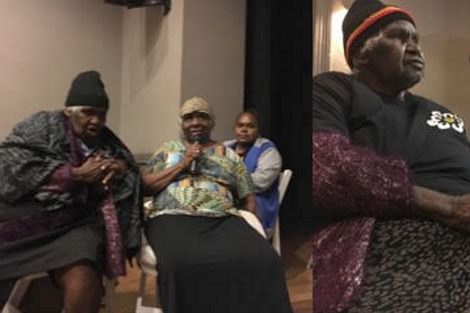
ENVIRONMENT
- Michele Madigan
- 23 September 2016
13 Comments
On Saturday 3 September, in Port Augusta, Yankunyjatjara Elder Edie Nyimpula King was keeping up the struggle, singing again the Seven Sisters inma, strong in its demands for a clean country and protection for the future generations. Its cry: Irati Wanti ... leave the poison! Have nothing to do with it! No radioactive waste dump in our country! But why is such responsibility for country and the health of its people forever so hard? Why is the destruction of country forever allowed to be normalised?
READ MORE 
-
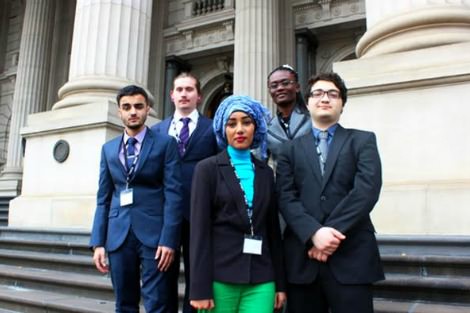
AUSTRALIA
- Katie Miller and Caitlin Meyer
- 29 June 2016
4 Comments
'I'm doing it for my kids.' This is how some supporters of Brexit explained their position before the referendum. Yet 75 per cent of voters aged 18 to 24 voted to Remain. It seems the message from 'the kids' to older voters was 'thanks, but no thanks'. The same can be seen in domestic politics here in Australia. We often hear politicians and voters talk about the effects of a policy on future generations. Yet the issues of concern to young people themselves simply don't get much attention.
READ MORE 
-
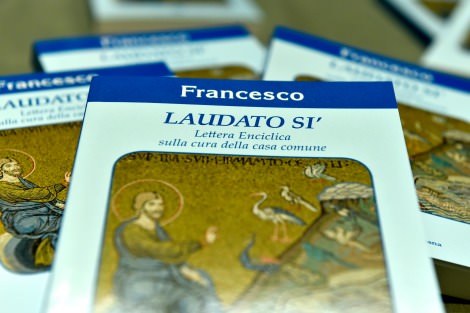
ENVIRONMENT
- Neil Ormerod
- 22 June 2016
23 Comments
It is now 12 months since Pope Francis issued his environmental encyclical Laudato Si'. He opined, 'Although the post-industrial period may well be remembered as one of the most irresponsible in history, nonetheless there is reason to hope that humanity at the dawn of the 21st century will be remembered for having generously shouldered its grave responsibilities.' Where are the Australian politicians who can give hope to the coming generation by focusing our attention on this most urgent issue?
READ MORE 
-
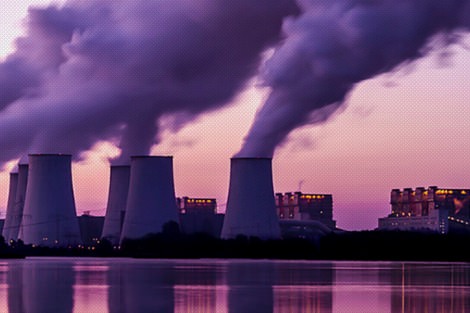
ENVIRONMENT
- Thea Ormerod
- 21 June 2016
4 Comments
An accelerating number of institutions and individuals are moving their money out of planet-heating fossil fuels and into climate solutions. The total assets guided by some form of divestment policy was $3.4 trillion at 2 December last year, 50 times more than what was up for divestment 12 months earlier. It sounds like a lot, but it's a small amount compared to the $100 trillion-plus invested in the usual way. That's our money, in banks and super funds, managed funds and insurance companies.
READ MORE 